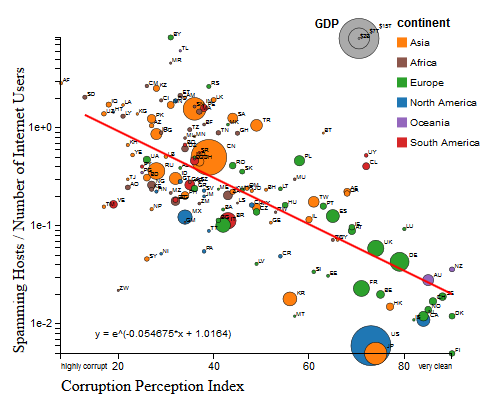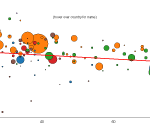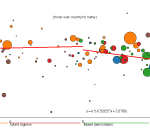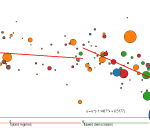Correlation between country governance regimes and the reputation of their Internet (IP) address allocations
Monday, April 15th, 2013 by Bradley Huffaker[While getting our feet wet with D3 (what a wonderful tool!), we finally tried this analysis tidbit that’s been on our list for a while.]
We recently analyzed the reputation of a country’s Internet (IPv4) addresses by examining the number of blacklisted IPv4 addresses that geolocate to a given country. We compared this indicator with two qualitative measures of each country’s governance. We hypothesized that countries with more transparent, democratic governmental institutions would harbor a smaller fraction of misbehaving (blacklisted) hosts. The available data confirms this hypothesis. A similar correlation exists between perceived corruption and fraction of blacklisted IP addresses.
For more details of data sources and analysis, see:
http://www.caida.org/research/policy/country-level-ip-reputation/

|
||
 |
 |
 |
| x:Corruption Perceptions Index y:IP population % |
x:Democracy Index y:IP population % |
x:Democracy Index y:IP infection % |